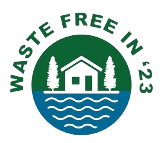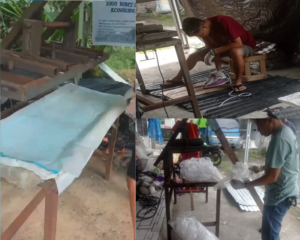Can We Melt Recycled Plastic Bags Safely? What Science Says About Gas Emissions
Plastic shopping bags are widely used, but most of them end up as waste, creating serious environmental problems. Recycling is a way to reduce plastic pollution, but the process of melting plastic to reshape it can release gases into the air. Some of these gases may be harmful, so scientists wanted to find out what exactly is released when recycled plastic bags are melted at different temperatures.
Why Is This Study Important?
When plastic is melted, it can produce flammable and possibly toxic gases. This is a concern for recycling workers and for the environment. However, if melting can be done safely, it allows plastic bags to be reused, reducing waste and supporting a circular economy where materials are used over and over again instead of being thrown away.
How Did Scientists Study This?
The researchers tested supermarket plastic bags that contained 80% recycled materials. They heated the bags at 160°C, 200°C, and 250°C and analyzed the gases released. They wanted to know:
- What chemicals were in the gas?
- Did the gases become more dangerous as temperatures increased?
- Could melting be done safely for recycling?
What Did They Discover?
The plastic bags were mostly made of high-density polyethylene (HDPE), a common plastic. When heated:
- Methane, ethylene, and other hydrocarbons were released. These gases are flammable and contribute to air pollution.
- At higher temperatures (250°C), more gas was released, including chemicals like phthalates, which can be harmful.
- Methane emissions increased 11 times from 160°C to 250°C. Methane is a greenhouse gas that contributes to climate change.
- Some gases were useful (e.g., long-chain hydrocarbons), which could be valuable in the chemical industry.
Environmental and Economic Benefits of Safe Recycling
- Reducing Waste: If we can recycle plastic bags safely, fewer end up in landfills or the ocean.
- Lower Emissions: Melting at lower temperatures (160°C-200°C) releases fewer harmful gases compared to burning plastic.
- Recycling Jobs: More effective recycling creates new business opportunities and jobs.
- Reusing Plastic: By melting and reshaping plastic bags into new products, we reduce the need for producing new plastic, saving resources and energy.
How Can We Make Recycling Safer?
To improve safety, the study suggests:
- Better ventilation in recycling plants to prevent harmful gas buildup.
- Using lower temperatures (160°C-200°C) to reduce emissions.
- More research into advanced recycling methods to capture and reuse released gases.
Final Thoughts
Melting recycled plastic bags can be done safely if proper precautions are taken. This study helps improve recycling methods, making them more sustainable and environmentally friendly. By reducing waste and pollution while creating economic opportunities, we can make plastic recycling part of a cleaner future.
Citation & Further Reading
This summary is based on the research article:
Eberhard, F. S., Bowtell, L., Lenske, B., & Islam, M. M. (2023). Investigation of Gas Release from Recycled Plastic Shopping Bags during Melting at Low Temperatures. Advances in Materials Science and Engineering. Read the full paper here.
Got questions?

